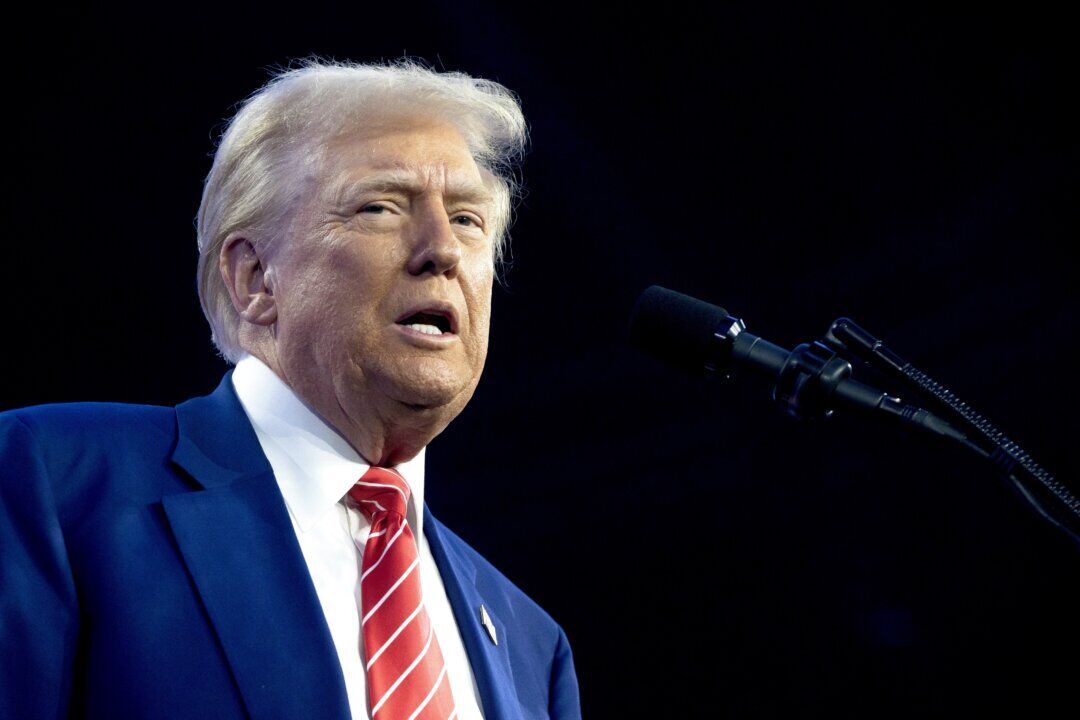‘They will try all sorts of tricks starting very soon,’ Trump said.
President-elect Donald Trump on Tuesday called on Republicans to try to overcome possible Democrat efforts to delay Senate confirmation of his Cabinet choices.
Republicans are slated to have a 53–47 majority over Democrats in the Senate, the chamber that confirms presidential appointments. Several of Trump’s selections for Cabinet positions have faced resistance from Democratic senators and some Republicans.
In a Dec. 31 post on social media, the president-elect wrote that he “just won a Historic Landslide and Mandate from the American People, but Senate Democrats are organizing to improperly stall and delay the confirmation process of many of our Great Nominees.”
“They will try all sorts of tricks starting very soon,“ Trump wrote in his post. ”Republicans must not allow them to do that.”
He said his administration has “a Country to run, and many big problems to solve,” before calling on GOP lawmakers to be “smart and tough,” using all caps.
While Republicans have the majority, Democrats may question some of Trump’s selections during confirmation meetings that are likely to start next month after Trump takes office. Senators can also use procedural measures to slow down the confirmation process.
Trump’s nominee to lead the Department of Defense, current Fox News host and U.S. Army veteran Pete Hegseth, has faced some resistance from both Democratic and Republican senators after he was named to lead the Pentagon. Earlier this month, Hegseth met with multiple GOP senators in a bid to shore up support amid statements from several GOP lawmakers that he may not be confirmed by the upper chamber.
In mid-December, Trump doubled down on his backing of Hegseth during an interview with NBC, saying Hegseth is a “young guy with a tremendous track record.”
“Actually went to Princeton and went to Harvard. He was a good student at both, but he loves the military, and I think people are starting to see it. So we’ll be working on his nomination, along with a lot of others,” Trump stated on the program.
Several Democrats in early December similarly expressed reservations about Tulsi Gabbard, the former Hawaiin congresswoman whom Trump named to be his director of national intelligence. For example, Sen. Tammy Duckworth (D-Ill.), a veteran of combat missions in Iraq, said she had concerns about Gabbard in an interview with CNN in which she accused her of being “compromised” because she met with former Syrian leader Bashar al-Assad in 2017.
“The U.S. intelligence community has identified her as having troubling relationships with America’s foes. And so my worry is that she couldn’t pass a background check,” Duckworth said.
However, some Republicans said that Duckworth’s comments were off-base.
“For her to say ridiculous and outright dangerous words like that is wrong,” Sen. Markwayne Mullin (R-Okla.) told CNN this month.
Some lawmakers also signaled that Robert F. Kennedy Jr. could face questions about his health stances after he was tapped by Trump to lead the Department of Health and Human Services, while incoming Senate Majority leader Sen. John Thune (R-S.D.) has said Kennedy will have to address questions about his views on the polio vaccine and other issues.
“Well, I think he’ll have to address that,” Thune said. “We’ll find out.”
“I’m open,” Sen. Thom Tillis (R-N.C.) told reporters on Kennedy. But “if you come in and say I won’t consider myself successful unless I eliminate these vaccines, that could be problematic,” he added.
Two of Trump’s nominees have withdrawn their names from consideration, including former Florida Rep. Matt Gaetz, whom Trump initially named to lead the Department of Justice, and Florida sheriff Chad Chronister, whom he tapped to lead the Drug Enforcement Agency (DEA).
Trump has since named former Florida Attorney General Pam Bondi to be his attorney general. While he has not named a replacement to lead the DEA, Trump said in a later statement that he asked Chronister to withdraw his name after the sheriff received resistance from conservatives regarding a COVID-19 lockdown arrest he had authorized.
The Associated Press contributed to this report.

